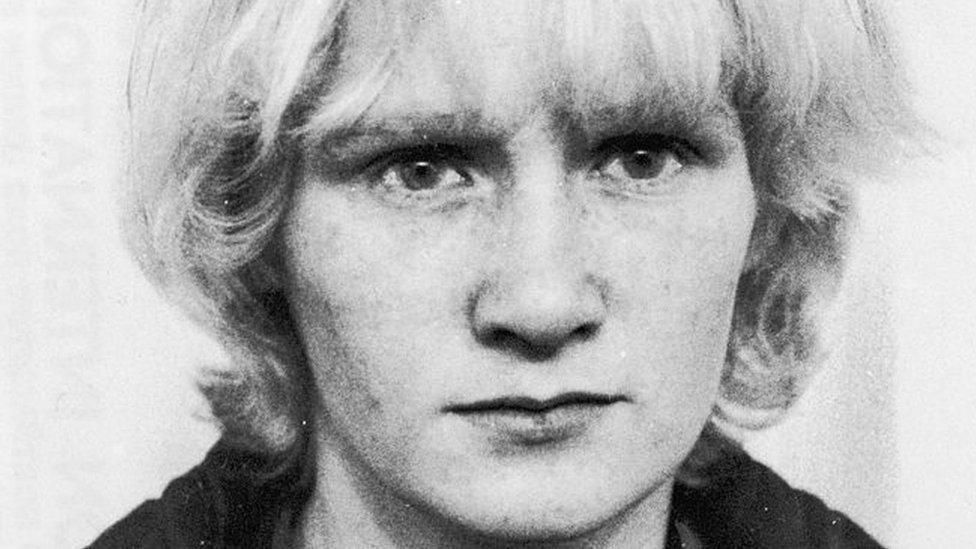Yorkshire Ripper death: Women recall fear in West Yorkshire
- Published
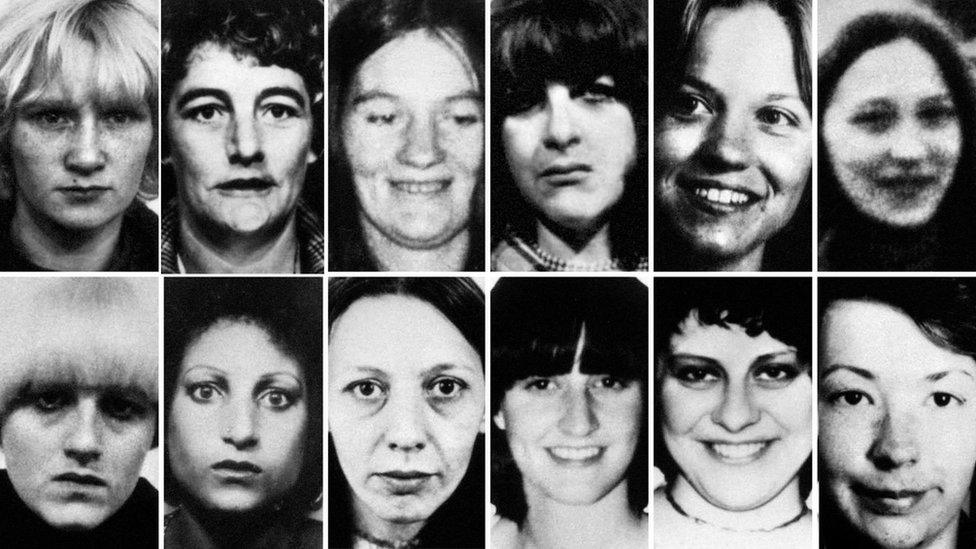
Twelve of the 13 women Sutcliffe was convicted of murdering: (Top row) Wilma McCann, Emily Jackson, Irene Richardson, Patricia Atkinson, Jayne McDonald and Jean Jordan. (Bottom row) Yvonne Pearson, Helen Rytka, Vera Millward, Josephine Whitaker, Barbara Leach and Jacqueline Hill
For five years, the spectre of the Yorkshire Ripper loomed over the north of England, particularly for young women. What was it like to grow up in the shadow of a serial killer?
Until his capture and unmasking in 1981, Peter Sutcliffe was a bogeyman-like character for schoolgirls in the north of England.
Whether at school or at home, girls were warned to stay vigilant and change their behaviour by adults, fearful they could be next.
After the death of the serial killer, three women who grew up in West Yorkshire at the time of the murders reflect on the fear felt across their communities.
'No woman was safe'
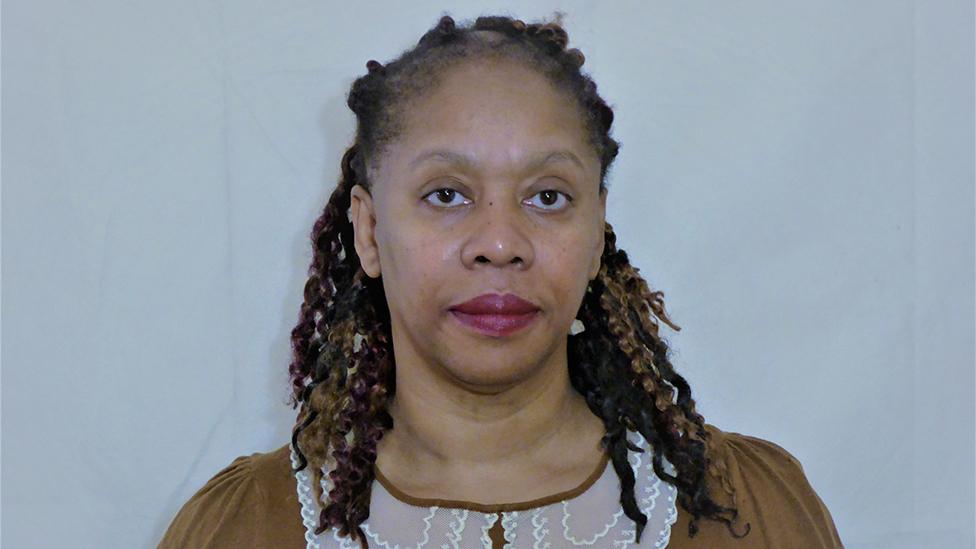
Dawn-Maria France remembered her father being "extremely protective"
Journalist and writer Dawn-Maria France was a child living in Leeds during the attacks.
She recalled everybody in the community where she live being "united in their fear of this evil man".
"I remember my dad being extremely protective of me and I know that other people of colour, their dads, granddads, uncles were also really protective of them," she said.
"It was just this fear that you couldn't go out with your friends. That you couldn't have a childhood where you could play in the street and it became more fearful as the night went on.
"I remember seeing in the newspaper a woman of colour who was attacked and that particular image was quite striking because now there was somebody like me who was attacked by this guy.
"It made it real seeing those images of all women. So then there was a realisation that no woman was safe.
"Because suddenly it wasn't just names, you were seeing those image played out in the newspapers.
"This is what this person looked like, this person had a family and has a backstory and you could see those people and see those women and realise you yourself weren't safe that your community wasn't safe and the fear factor was crippling at the time."
'We were told at school'
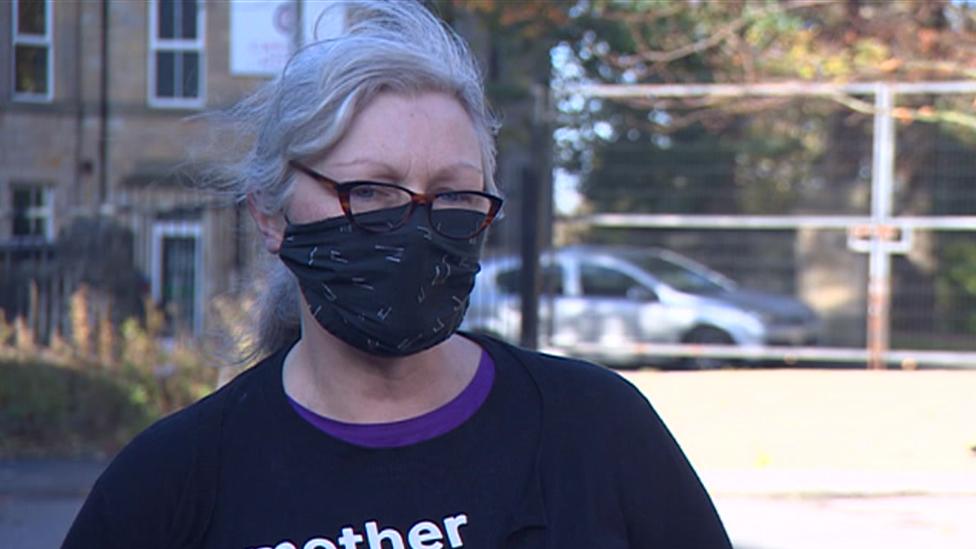
Emma Dolan recalled warnings being given in school assemblies
As a 12-year-old schoolgirl in north Leeds, Emma Dolan lived near to where 20-year-old student Jacqueline Hill was murdered in November 1980.
She had planned to unveil a plaque next week to mark the 40th anniversary of Ms Hill's killing, but instead set up a memorial on Friday after hearing of Sutcliffe's death.
"We were always aware of this kind of almost bogeyman figure in the background that girls and women were warned against and he was spoken of even then as some kind of myth instead of just an evil man," she said.
"We were told about it at school. Assemblies were held warning girls that it wasn't safe to walk home.
"There was always that knowledge that there was something, some evil out there that we were having to adapt our behaviour to.
"Even then I remember girls being angry and having that 'it's not fair' feeling.
"It's not our fault, why are we having our lives restricted like this?"
'System had let women down'
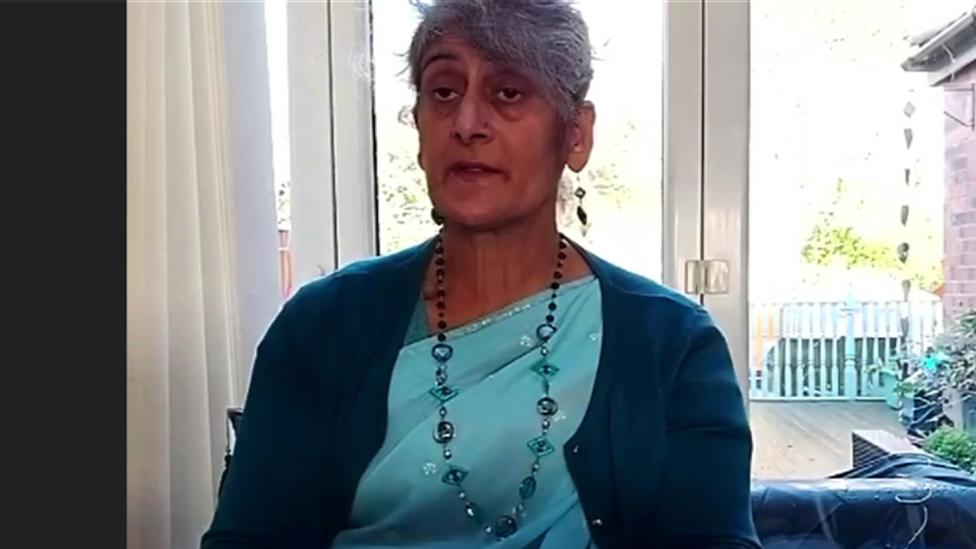
Kauser Jan later met a woman who had survived an attack by Sutcliffe
Kauser Jan, who was a teenager living in Bradford at the time of the attacks, described the atmosphere in the city as "absolutely petrifying".
"You were really mindful," she said.
"It was a very scary time, because it did highlight that women weren't safe.
"I remember the demonisation of the women, the sex workers that had been attacked.
"It was almost as though it was OK because they were sex workers, not the fact that they were women."
The murder of Josephine Whitaker, a 19-year-old building society clerk, turned the tide of public opinion.
"Then it was only when the young girl was attacked, and she wasn't a sex worker, that perceptions started to change and the system had kind of let women down," Ms Jan said.
Years later, Ms Jan met a woman who had survived an attack by Sutcliffe.
"She told me of how she had been attacked and hit in the head with the hammer and you could see visible signs," she said.
"She said as a consequence of Peter Sutcliffe attacking her 'people think I'm stupid' because her speech was slurred.
"I remember that touched me at the time. Thinking how strong she was and yet she was isolated as well, because she was still living with that fear."

Follow BBC Yorkshire on Facebook, external, Twitter, external and Instagram, external. Send your story ideas to yorkslincs.news@bbc.co.uk or send video here.
- Published13 November 2020
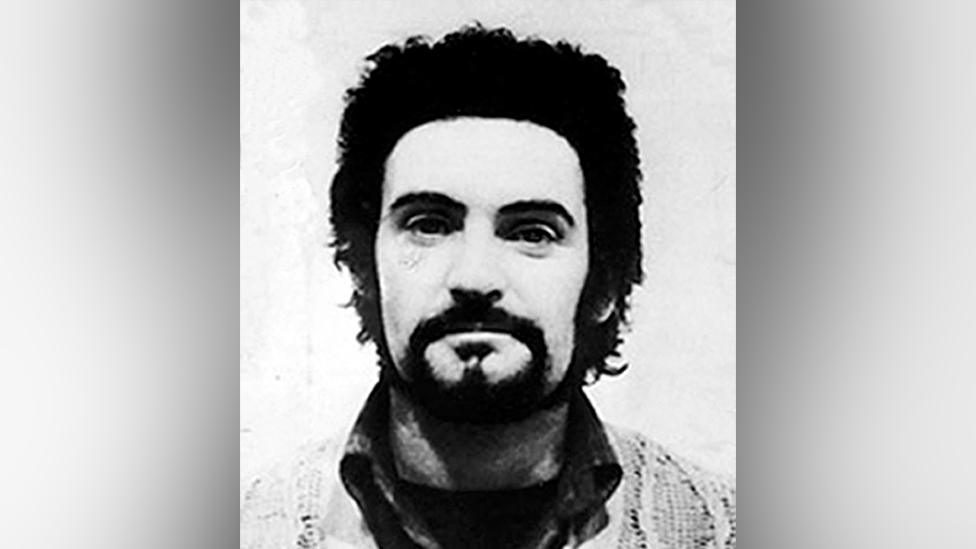
- Published13 November 2020

- Published13 November 2020
